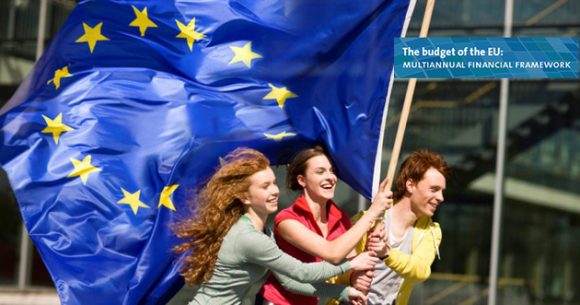COMECE contributed to five public consultations launched by the EU Commission in preparation of the Multiannual financial framework post 2020.

(Credit: Web)
COMECE contributions vary in nature and topic but highlight two major ideas. First, to ensure a fair, simplified and non-discriminatory access to EU funding for all actors working for the Common Good. Among them including Churches and religious communities are important societal actors in areas such as education, social cohesion, charity, humanitarian action, healthcare, and development.
Second, is the strategic use of the financial tool for policies directed to put back the human person at their center, uniting instead of dividing, “recovering a sense of being a single community that sustains and assists its members and not just a collection of small interests’ groups” – as Pope Francis stated during (Re)thinking Europe.
The five consultations to which COMECE contributed are:
Values and Mobility
• COMECE supports a Union of “principles” – and for a “rights-based approach” – rather than of “values”, and encourages the EU to implement in its funding initiatives the idea that human rights are universal, indivisible, interdependent and interrelated.
• The EU is encouraged to pay a higher attention to discrimination on grounds of religion, to map cases where persons are targeted because of their religion, and to take into account that discriminating also means to treat in the same way different situations.
• EU funds should also benefit initiatives promoting religious literacy and heritage, in order to avoid the misuse of religion and the polarisation of societies. The ‘Europe for Citizens’ Programme, in particular the funding promoting and valuing common historical memories and remembrance and cross-border initiatives, should be strengthened. (Read the full contribution here)
Cohesion
• The EU should deepen its social dimension and translate the principles of the recently adopted European Pillar of Social Rights in concrete policy using its funds.
• The European Pillar of Social Rights should guide the discussions and negotiations on the future Multiannual Financial Framework and the EU budget. It should be used as a template for the orientation of the future EU cohesion policy, whose flexibility should be increased in order to face eventual unexpected developments and asymmetric shocks.
• COMECE urges the EU to keep combating poverty, to adhere to the climate and poverty targets of the Europe 2020 strategy and to place the Sustainable Development Goals (SDGs) at the center of a new agenda for 2030. (Read the full contribution here)
Security
• EU funds in this area should support aiming at human security and sustainable peace environment.
• The EU should increase its support also to non-military pre-emptive peace-building initiatives, including promoting human, socio-economic and ecological security.
• COMECE suggests that EU funds should be better articulated with other policy instruments in order to enhance cross-sectoral coordination and better involve different types of actors at and across different levels. (Read the full contribution here)
Migration
• Integration of migrants should be mainstreamed within broader policies on social inclusion, by prioritising the funding of projects with mixed target groups, both migrants and other local vulnerable groups, focused on the wellbeing of migrants and people of the hosting societies.
• The existing EU funding procedures should be simplified as much as possible and include new channels focusing on community-based project model in order to facilitate the accession for small-scale initiatives carried out by Churches, religious communities and associations, including in rural areas. (Read the full contribution here)
Investment, Research & Innovation, SMEs and Single Market
• Churches as well as other religious communities have a significant impact on the general ethical background of activities funded by the European Union. Analysing the “Ethics Appraisal Procedure” – obligatory for all activities funded by the European Union under Horizon 2020 – COMECE points out that the question of a reinforcement of the fundamental ethical principles within the all research activities should be considered.
